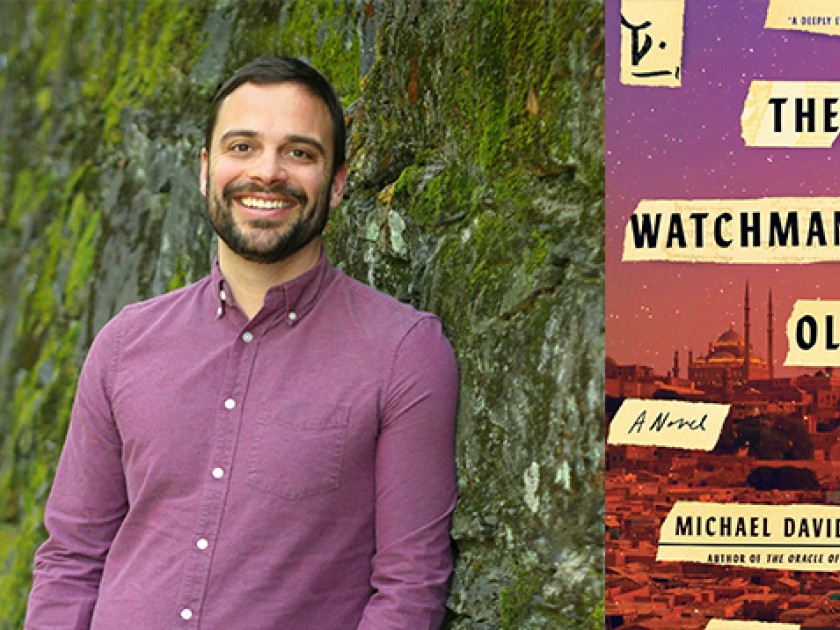
Image credit: Irene Young
In advance of the 68th Annual National Jewish Book Awards ceremony on March 5th, 2019 (which you can buy tickets for here), Jewish Book Council is sharing short interviews with the winners in each category.
Michael David Lukas’s The Last Watchman of Old Cairo is the winner of the 2018 JJ Greenberg Memorial Award for Fiction. In a beautifully written novel that toggles between Cairo in the eleventh century, the nineteenth century, and the present day, Lukas has created a captivating story detailing the history of Cairo’s Ibn Ezra Synagogue, its treasures, and the divisions among people in its midst. The judges say: “Part family quest, part detective story, Lukas weaves a thrilling tale that brims with intellectual and emotional passion. This historically significant and distinctly modern novel is filled with erudition and charm.”
Which three Jewish writers, dead or alive, would you most like to have dinner with?
That’s a tough one. Part of me would want to invite Freud and Philip Roth then sit back and let them go at it. But, when it comes down to it, I think I would invite Emma Goldman, Moses Maimonides, and Franz Kafka.
What’s your favorite book that no one else has heard of?
Not sure that no one’s ever heard of it, but I’m a big fan of Walter Benjamin’s Berlin Childhood around 1900.
Which Jewish writers working today do you admire most?
Another tough one. But, if I’m thinking about their influence on my own writing, I would go with Michael Chabon, Nicole Krauss, Etgar Keret, and Nathan Englander.
What are you reading right now?
Flights by Olga Tocarczuk. I read in transit, in little snips. And it’s hard to imagine a better book for that mode of consumption.
What are your greatest creative influences (other than books)?
My family, my students, and other writers. Also my dog, Rashi, who is almost always there with me when I’m writing.
What do you hope readers will take away from your book?
I hope every reader takes from the book what they most need. As far as what I took away from the writing process, the biggest thing was probably a broader understanding of Jewish history in general and specifically the history of Muslim-Jewish coexistence.